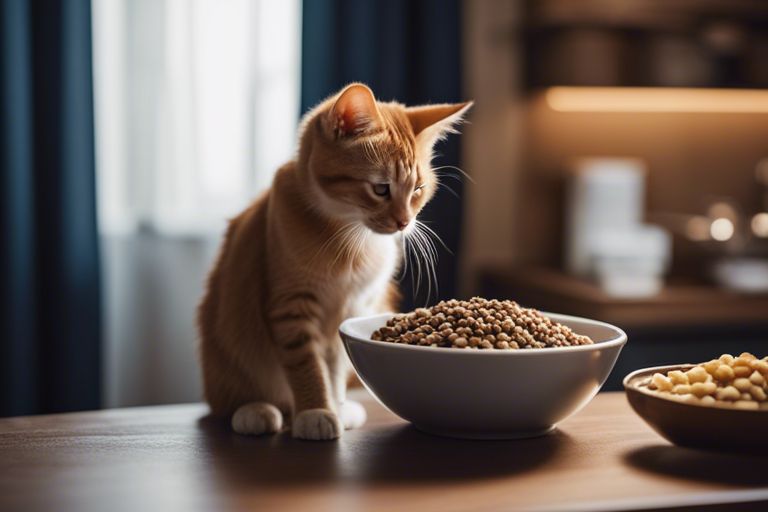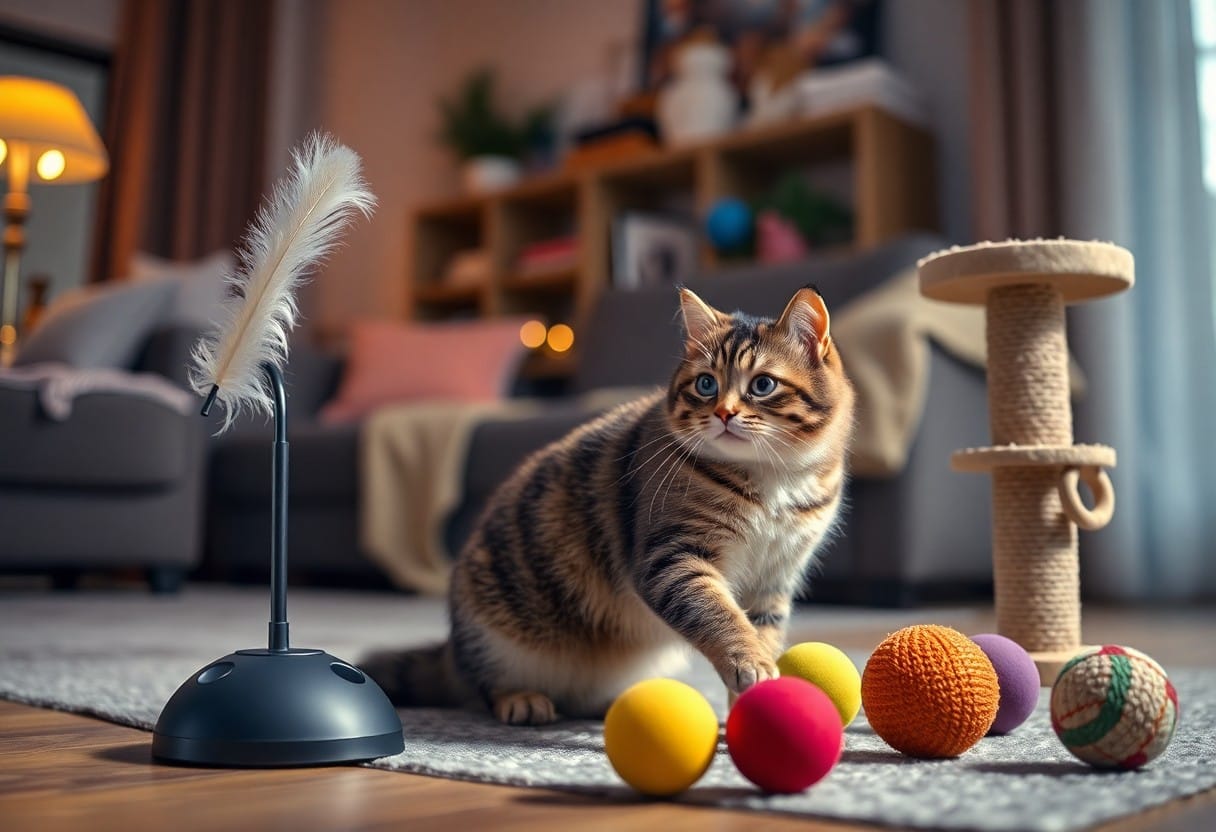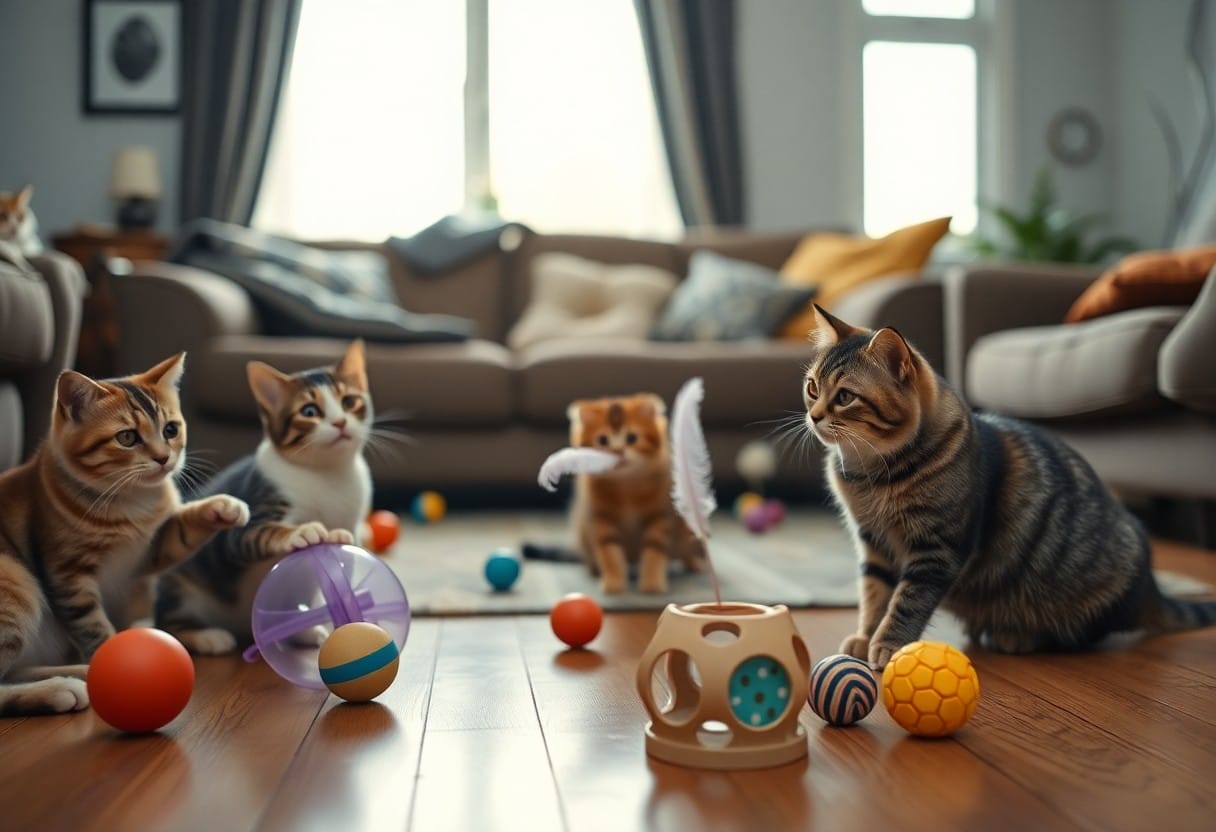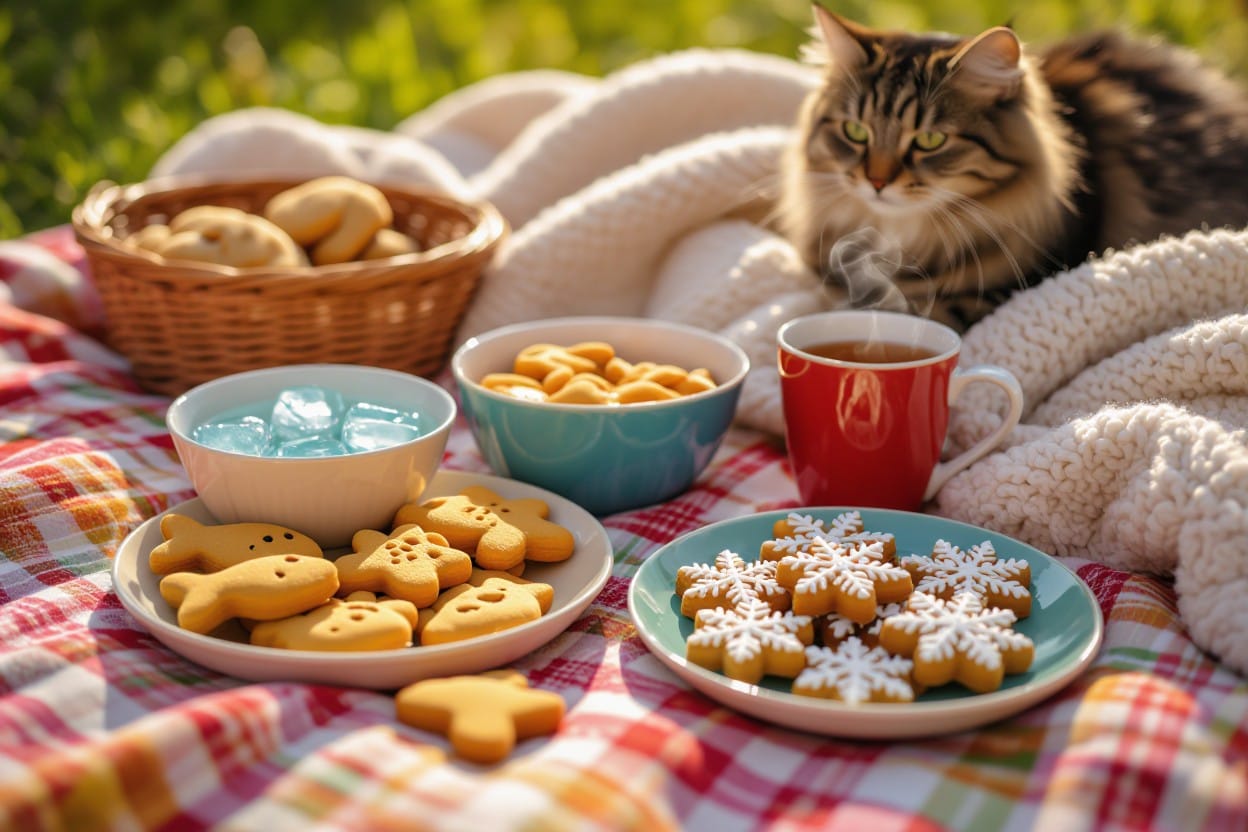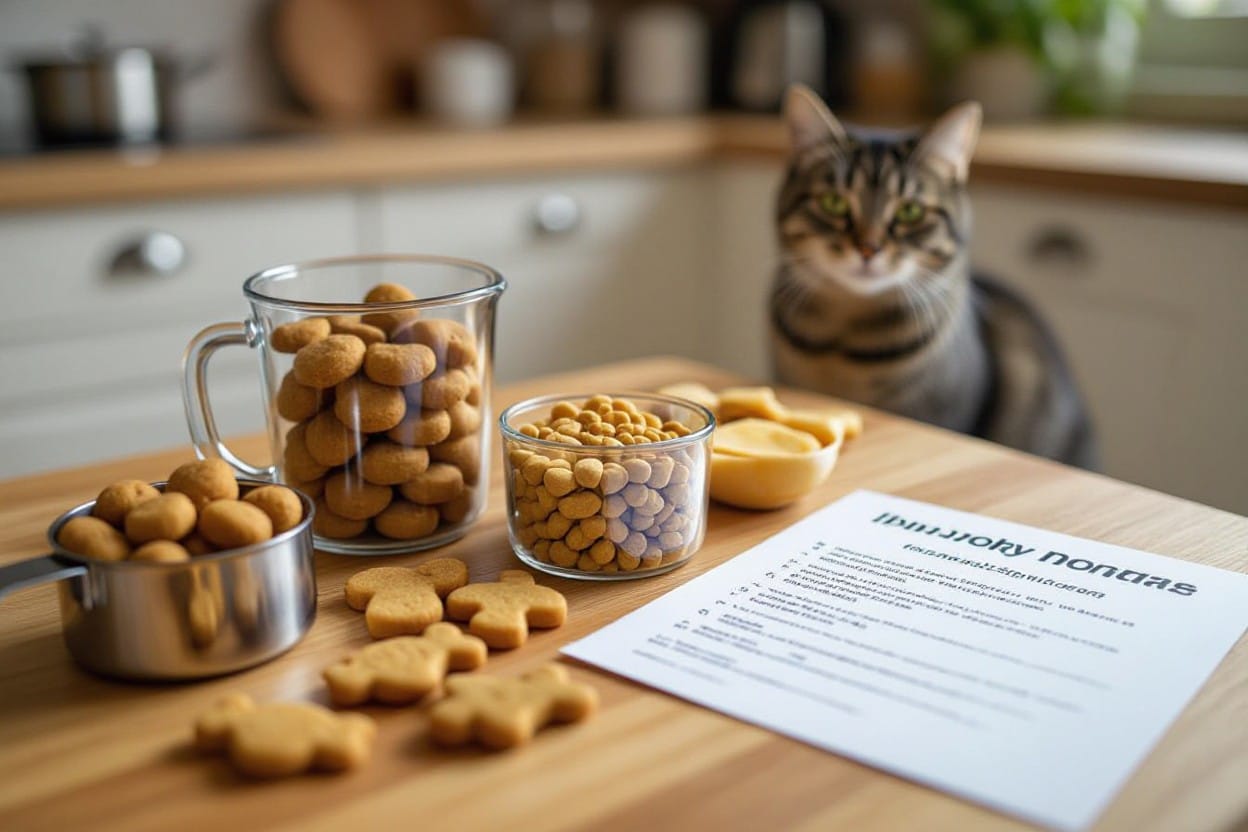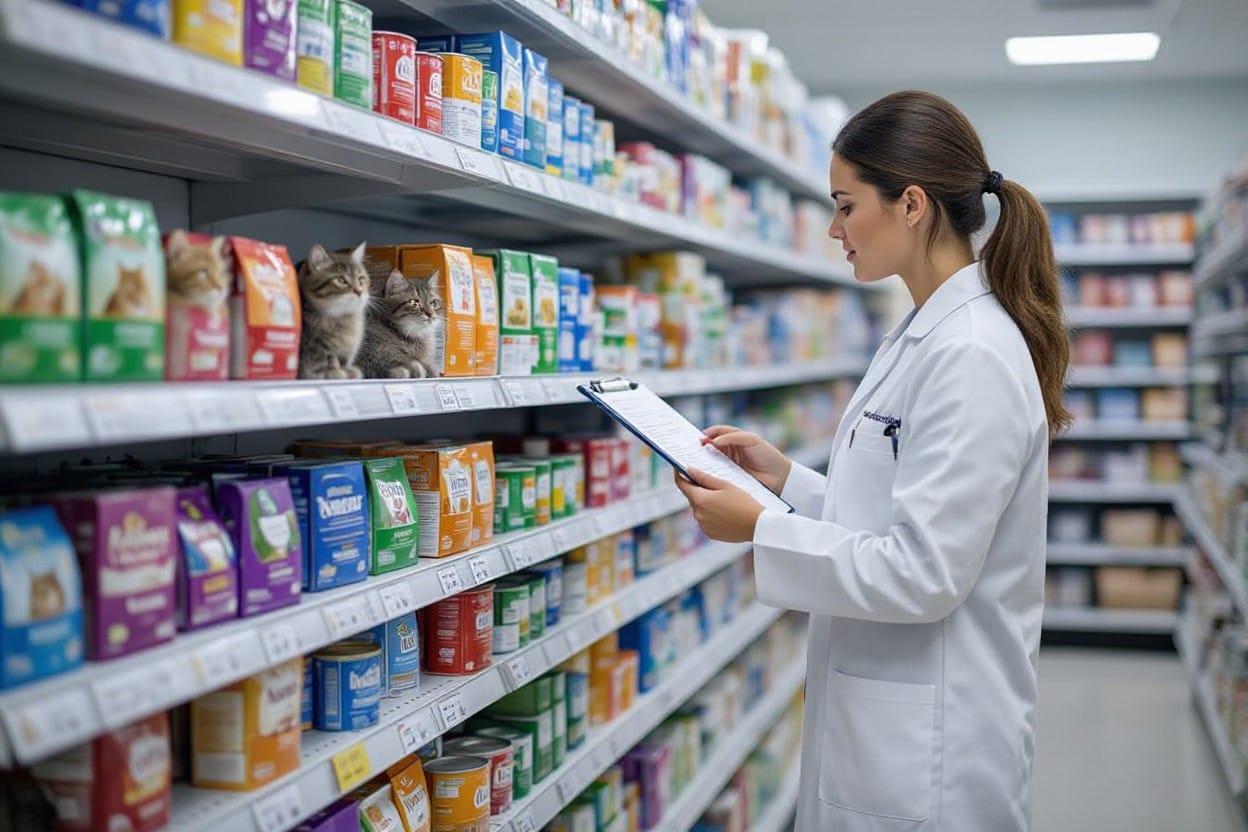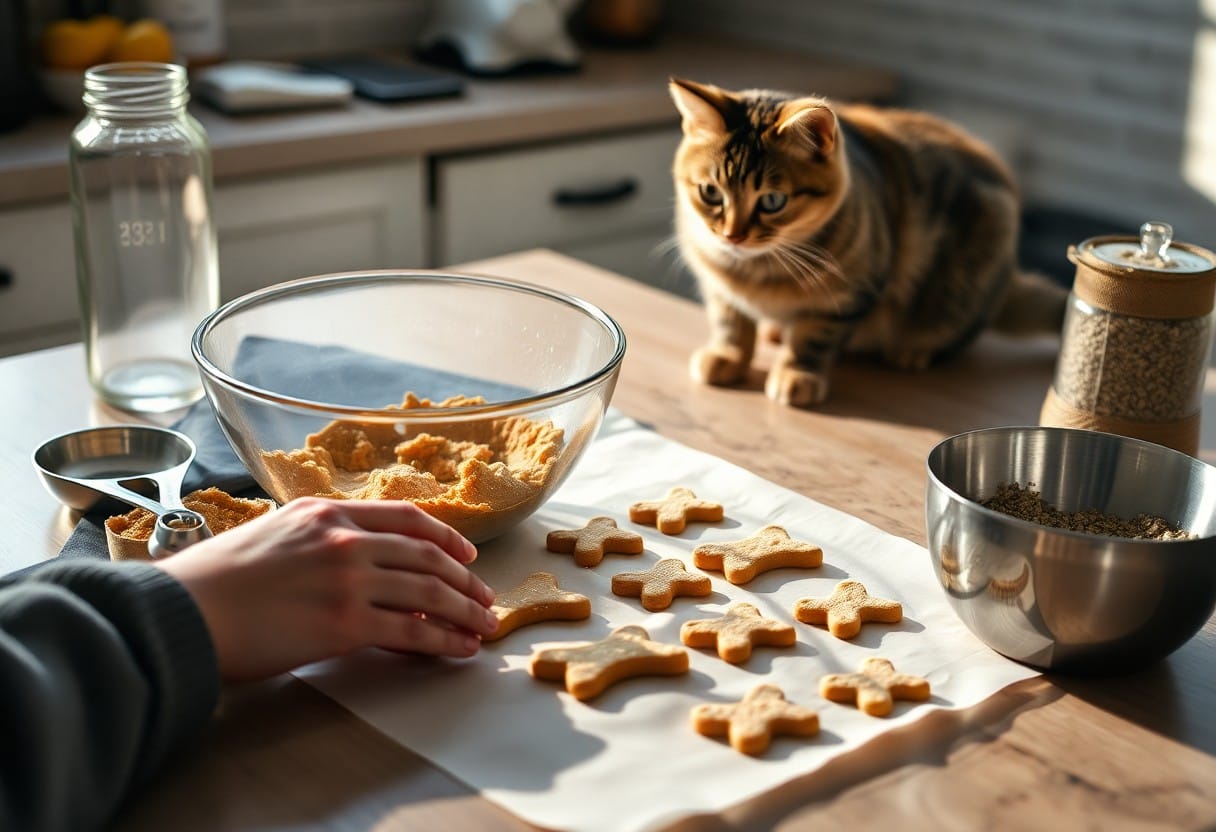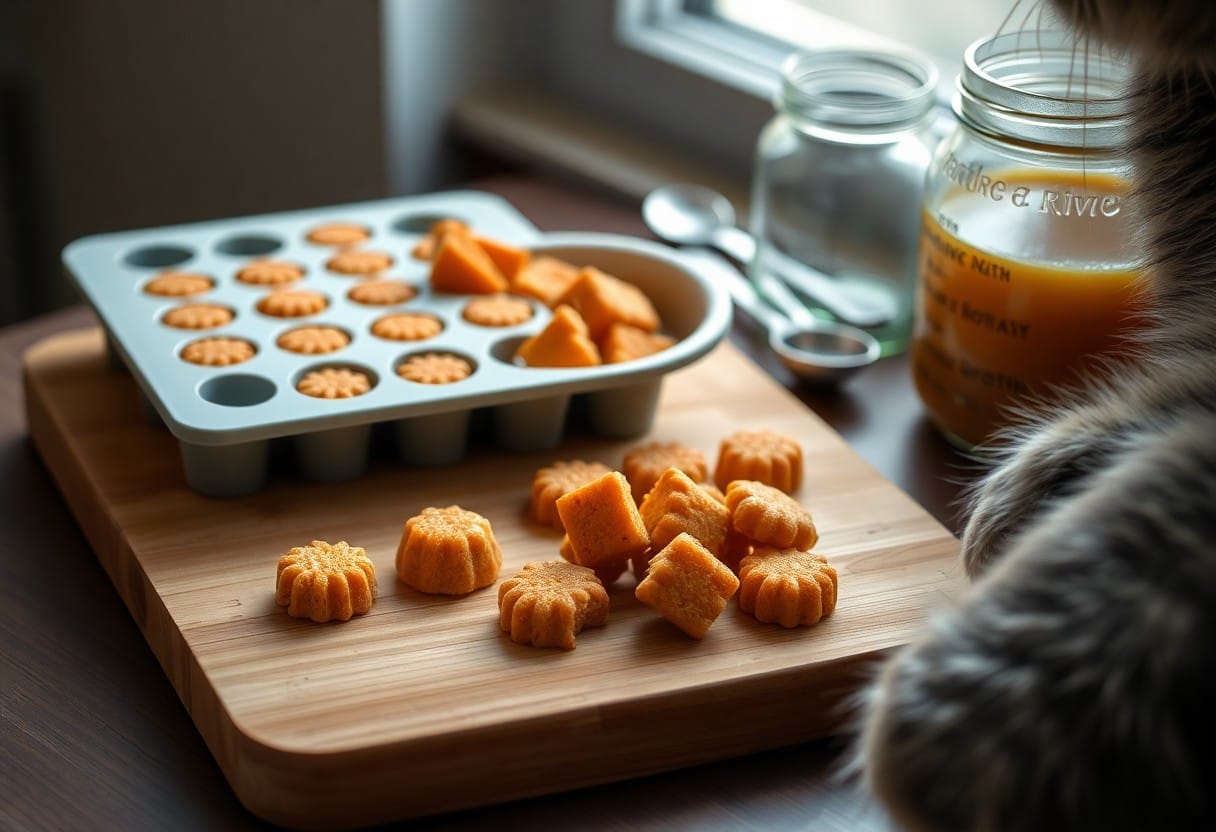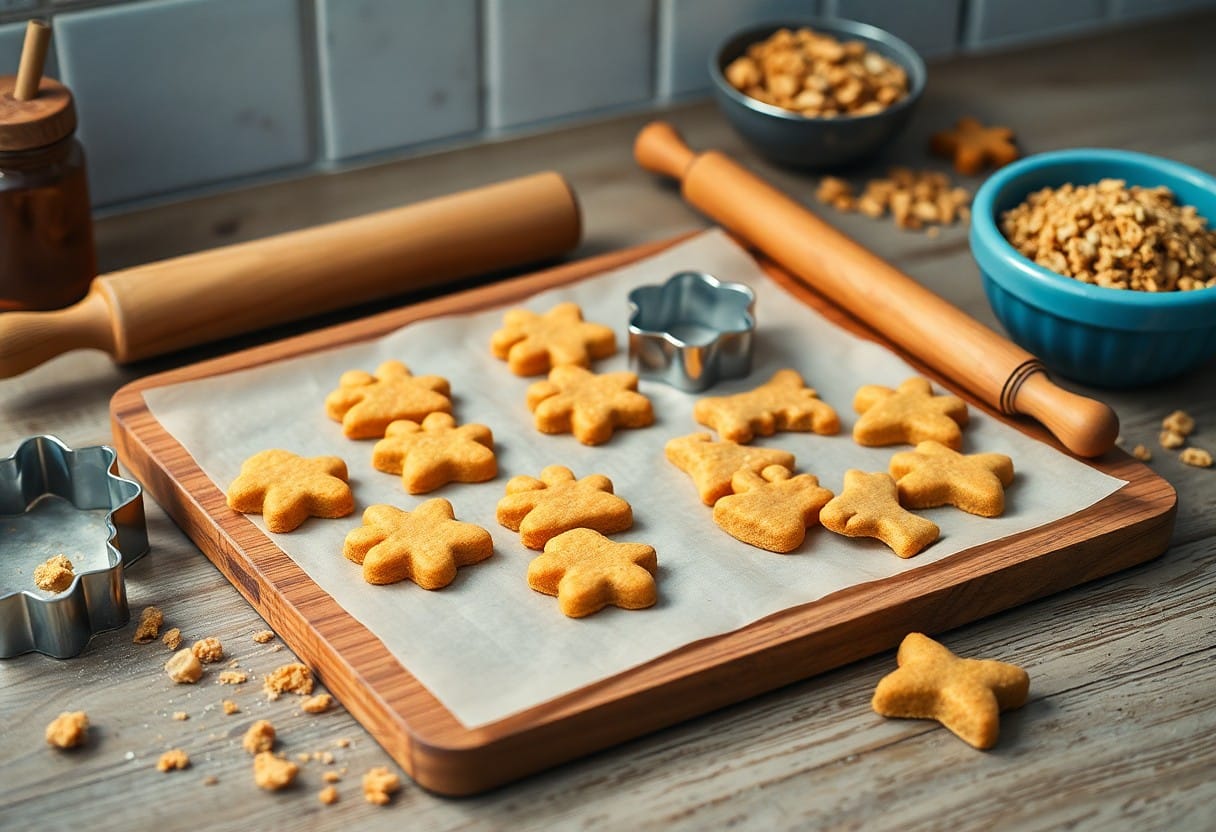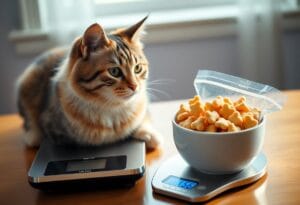Overseeing your cat’s digestive health is crucial for their overall well-being. Cats can encounter various digestive issues, but with the right strategies, you can help improve their digestive system. From proper hydration and balanced nutrition to regular vet check-ups and suitable feeding routines, our expert tips will guide you in ensuring your feline friend maintains a healthy digestive tract.
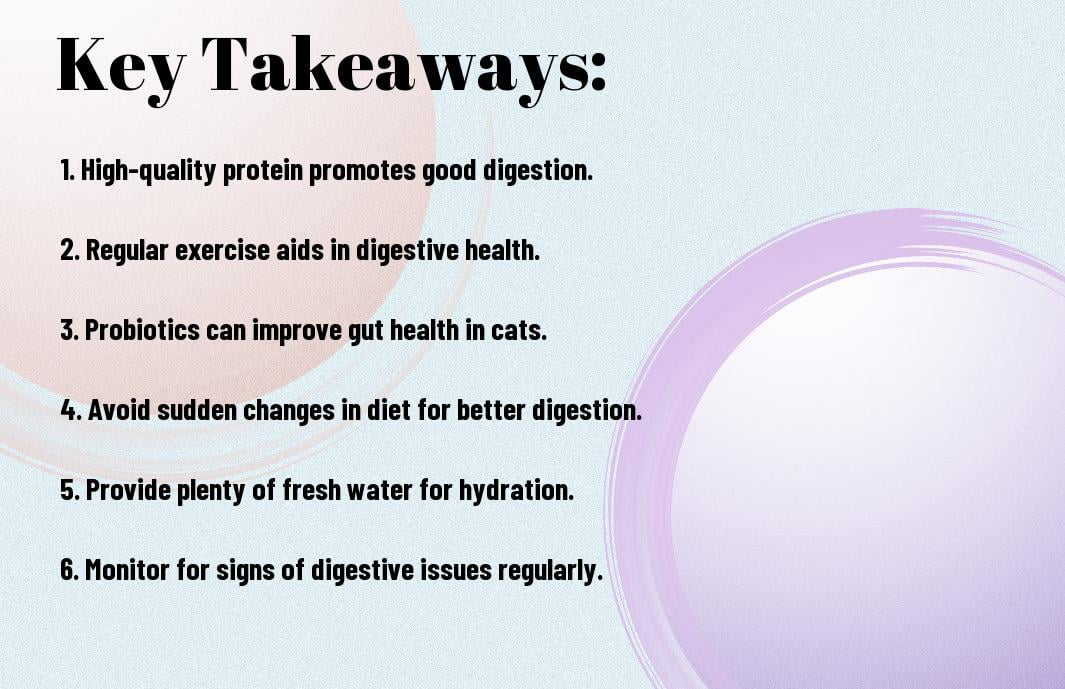
Anatomy of a Cat’s Digestive System
The Role of Key Organs
Any cat owner concerned about their feline friend’s digestive health should have a basic understanding of the anatomy of a cat’s digestive system. Cats have a relatively simple gastrointestinal tract compared to humans, consisting of the mouth, esophagus, stomach, small intestine, large intestine, and anus.
How Digestion Works in Cats
Cats are obligate carnivores, which means their digestive systems are designed to process a diet high in animal proteins. The digestive process starts in the mouth, where cats use their sharp teeth to tear and chew their food before swallowing. From there, the food travels down the esophagus to the stomach, where it is mixed with stomach acid to begin the breakdown of proteins.
Understanding how a cat’s digestion works is crucial for ensuring their overall health and well-being. By providing a diet that aligns with their carnivorous nature and promoting good digestive function, cat owners can help their feline companions lead healthy and happy lives.
Common Digestive Issues in Cats
It is imperative for cat owners to be aware of common digestive issues that can affect their feline friends. Digestive problems can range from minor issues such as hairballs to more severe conditions like inflammatory bowel disease or pancreatitis.
Identifying Symptoms of Digestive Distress
Digestive distress in cats can manifest in various ways. Some common symptoms to watch out for include vomiting, diarrhea, constipation, loss of appetite, lethargy, and changes in litter box habits. If you notice any of these signs, it is crucial to monitor your cat closely and seek veterinary attention if the symptoms persist or worsen.
When to Seek Veterinary Care
Identifying when to seek veterinary care for your cat’s digestive issues is crucial for their health and well-being. If your cat is experiencing persistent or severe symptoms such as blood in vomit or stool, abdominal pain, dehydration, or sudden weight loss, it is time to consult with a veterinarian. Delaying treatment can worsen your cat’s condition and lead to potentially serious consequences.
With proper attention and timely intervention, many digestive issues in cats can be managed effectively, leading to a healthier and happier feline companion.
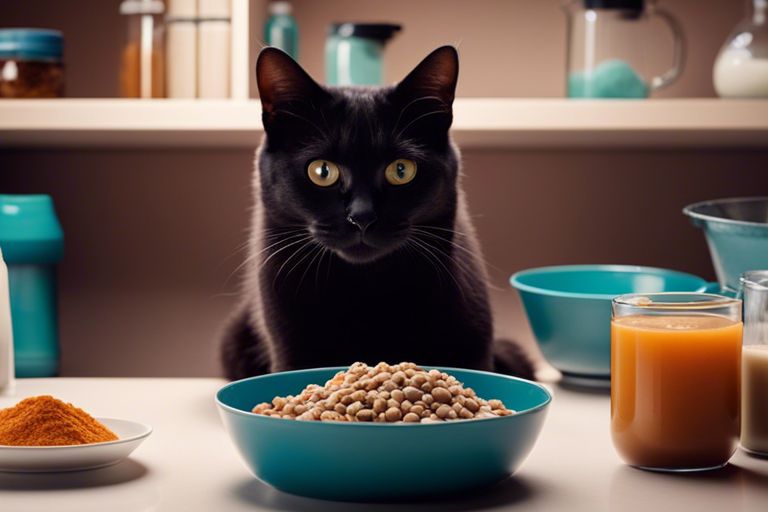
Nutritional Strategies for Optimal Digestion
Choosing the Right Food for Your Cat
Many cat owners underestimate the importance of selecting the right food for their feline companions when it comes to digestive health. It is crucial to choose a high-quality cat food that is easily digestible and provides necessary nutrients. Look for options that contain real animal protein as the first ingredient and are free of fillers, artificial additives, and excessive carbohydrates.
Additionally, consider your cat’s age, activity level, and any specific dietary requirements when selecting their food. Consulting with your veterinarian can help you choose the best diet for your cat’s individual needs and digestive sensitivities.
The Benefits of Probiotics and Prebiotics
Probiotics are beneficial bacteria that can help maintain a healthy balance of gut flora in your cat’s digestive system. Prebiotics, on the other hand, are non-digestible fibers that serve as food for probiotics, helping them thrive and improve digestive health. Adding probiotics and prebiotics to your cat’s diet can help with digestion, nutrient absorption, and overall gut health.
Nutritional supplements containing probiotics and prebiotics can be particularly beneficial for cats with digestive issues, such as irritable bowel syndrome or food sensitivities. These supplements come in various forms, including powders, chews, and capsules, and can easily be incorporated into your cat’s daily routine for improved digestive function.
The Impact of Lifestyle on Feline Digestion
Exercise and Its Digestive Benefits
Now, let’s research into how your cat’s lifestyle can significantly affect their digestive health. Pertaining to exercise, keeping your feline friend active plays a pivotal role in maintaining a healthy digestive system. Regular physical activity helps in regulating metabolism, preventing constipation, and reducing the risk of obesity, all of which are crucial for proper digestion.
Encouraging playtime with interactive toys, providing scratching posts, and engaging in laser pointer games are excellent ways to ensure your cat gets the exercise they need to support their digestive well-being.
Stress, Anxiety, and Digestive Health
Lifestyle factors like stress and anxiety can also have a considerable impact on your cat’s digestive health. Cats are sensitive creatures that can easily become stressed due to changes in their environment, routine, or even social interactions. This stress can lead to gastrointestinal issues such as diarrhea, vomiting, or a loss of appetite, all of which disrupt their digestive processes.
It is important to create a calm and secure environment for your cat, provide hiding spots, and maintain a consistent daily routine to help alleviate their stress levels and promote better digestion.
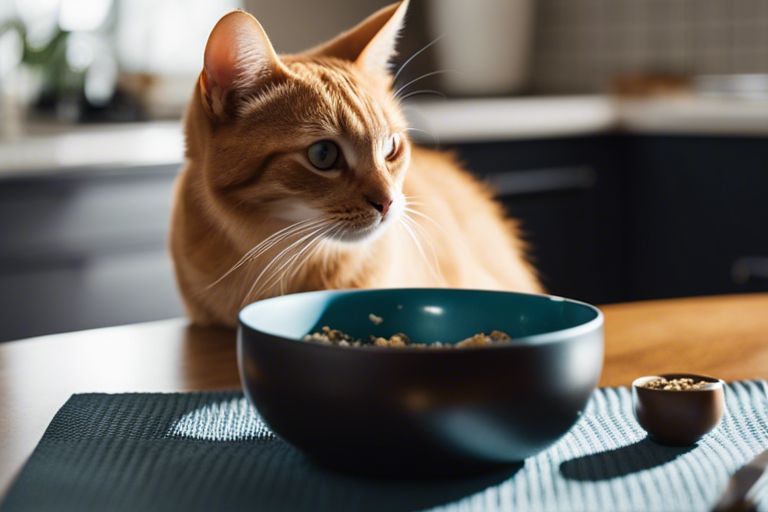
Home Remedies and Natural Solutions
Herbal Remedies for Digestive Support
On top of commercial supplements, you can turn to herbal remedies to support your cat’s digestive health. Herbs like chamomile, ginger, and dill can help reduce inflammation and calm the stomach. You can easily brew a tea using these herbs and mix it with your cat’s food or water for a soothing effect on their digestive system.
DIY Digestive Health Boosters
Natural solutions for improving your cat’s digestive health can also include simple DIY projects using ingredients you likely already have at home. Mixing a small amount of pureed pumpkin or plain yogurt into your cat’s food can introduce healthy probiotics and fiber into their diet, promoting a balanced digestive system.
Another option is to create homemade bone broth for your cat. Bone broth is rich in nutrients like collagen, amino acids, and minerals that can help heal and soothe the gut lining, improving your cat’s overall digestive health.
Advanced Care and Treatments
- Prescription Diets and Supplements
Not all digestive issues can be resolved with a simple diet change. In more severe cases, your veterinarian may recommend prescription diets and supplements to help manage your cat’s digestive health. These specialized diets are formulated with ingredients that are easy for your cat to digest and may contain additional nutrients to support gastrointestinal function.Prescription Diets Supplements Specifically formulated to address digestive issues May contain probiotics or enzymes to aid digestion Regulated to meet nutritional standards Designed to support overall gastrointestinal health - Surgical and Non-Surgical Interventions
Not all digestive problems can be managed with diet and medication alone. In cases where your cat’s condition is severe or surgical intervention is necessary, your veterinarian may recommend surgical or non-surgical treatments to address the underlying issue.Prescription Diets Supplements Specifically formulated to address digestive issues May contain probiotics or enzymes to aid digestion Regulated to meet nutritional standards Designed to support overall gastrointestinal health
Understanding Surgical and Non-Surgical Interventions: In some cases, surgical procedures such as gastrointestinal surgery or endoscopy may be necessary to diagnose and treat underlying digestive issues. Non-surgical interventions may include procedures such as enemas or colonoscopies to address specific gastrointestinal problems.
Monitoring and Maintaining Digestive Health
Regular Checkups and Preventive Measures
An important part of maintaining your cat’s digestive health is through regular veterinary checkups. Annual checkups can help catch any digestive issues early on, preventing them from becoming more serious problems. Your vet can also provide guidance on preventive measures such as vaccinations, deworming, and flea control, which can all contribute to your cat’s overall digestive well-being.
Keeping a Digestive Health Record
Checkups at the vet are crucial, but keeping a digestive health record at home can also be beneficial. Note down any changes in your cat’s appetite, water intake, litter box habits, and overall behavior. Tracking these details can help you and your vet identify any patterns or changes that may indicate a digestive issue. This record can also be a useful reference during vet visits, providing valuable information for accurate diagnosis and treatment.
Keeping a detailed record can help you and your vet track your cat’s digestive health over time, making it easier to identify any recurring issues or patterns that need attention. Include dates, symptoms, and any changes you’ve made to their diet or routine. This record can serve as a valuable tool for addressing digestive issues promptly and effectively.
Summing up
Considering all points, improving your cat’s digestive health is crucial for their overall well-being. By following expert tips such as providing a high-quality diet, proper hydration, and regular vet check-ups, you can ensure that your feline friend maintains a healthy digestive system. Remember to pay attention to any warning signs of digestive issues and seek professional help if needed to keep your cat happy and healthy.
FAQ
Q: Why is my cat’s digestive health important?
A: Your cat’s digestive health is crucial for their overall well-being. A healthy digestive system ensures proper nutrient absorption, immune function, and prevents gastrointestinal issues.
Q: How can I improve my cat’s digestive health?
A: You can improve your cat’s digestive health by providing a high-quality diet, ensuring they have access to fresh water at all times, and incorporating probiotics into their routine.
Q: What are the signs of poor digestive health in cats?
A: Signs of poor digestive health in cats include vomiting, diarrhea, constipation, excessive gas, bloating, and changes in appetite or weight loss.
Q: Should I consult a veterinarian if my cat has digestive issues?
A: Yes, it is important to consult a veterinarian if your cat is experiencing digestive issues. They can help diagnose the problem and recommend appropriate treatment options.
Q: Are there any natural remedies to aid in improving my cat’s digestive health?
A: Yes, you can try adding pumpkin puree to your cat’s food, offering probiotic supplements, or incorporating bone broth into their diet to help improve their digestive health naturally.
